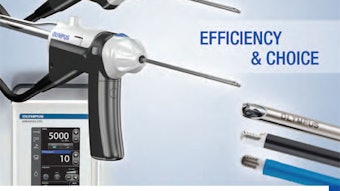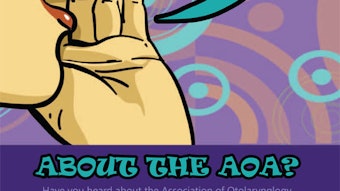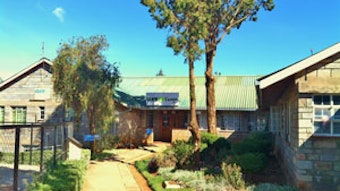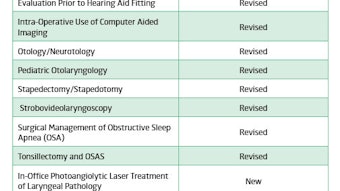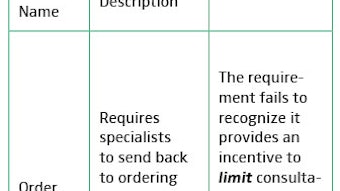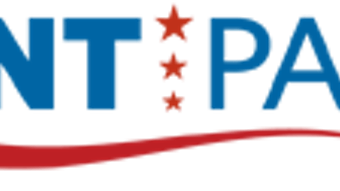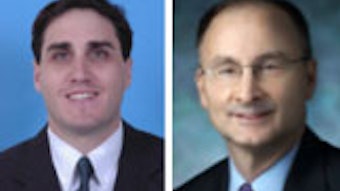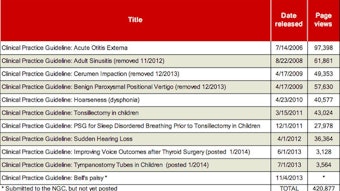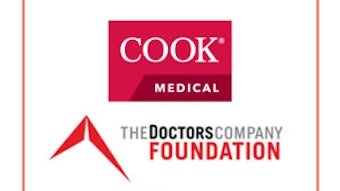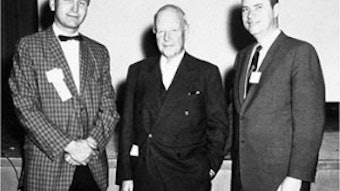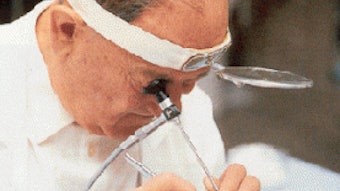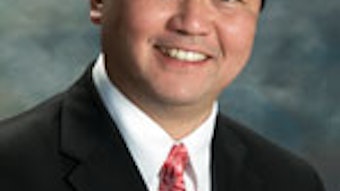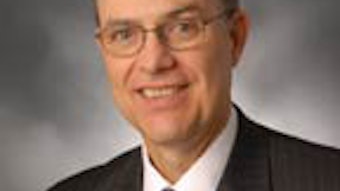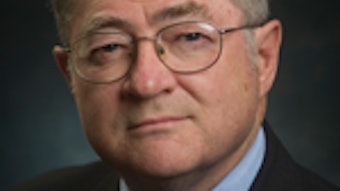AMPATH Kenya Surgical Mission – EXTENDED ONLINE VERSION
Susan R. Cordes, MD Bruce H. Campbell, MD Debara L. Tucci, MD, MBA As part of the greater AMPATH Kenya Program, our nine-member team traveled to Eldoret in western Kenya, in February 2014 to deliver medical and surgical care and build on existing relationships in the program. AMPATH (Academic Model for Providing Access to Healthcare) was initiated by Indiana University (IU) physicians in 1989 as a partnership between IU and Moi University School of Medicine. MoiUniversity and its hospital, Moi Teaching and Referral Hospital (MTRH) in Eldoret, provides the only academic medical center for over three million people. The partnership between IU and MoiUniversity has flourished and expanded to include multiple specialties including otolaryngology. One of the main tenets of AMPATH is to provide education and research but to always “Lead with Care.” With that concept in mind, otolaryngologist/head and neck surgeons have traveled to Kenya once or twice each year since 2009 to provide much-needed surgical care and education. Currently, otolaryngology has the longest waiting time for elective surgery at MTRH, and our team was able to perform 35 procedures and, in the process, teach surgical technique and enhance the already very solid partnership between the American and Kenyan otolaryngologists. The American team consisted of Susan Cordes, MD (Indiana University), Bruce Campbell, MD (Medical College of Wisconsin), Debara Tucci, MD (Duke University), and Jack Coleman, MD (former chair of plastic surgery at IU), as well as nurses and IU medical student (and otolaryngologist-to-be), Joel Franco. We had the privilege of working with MTRH otolaryngology colleagues Titus Sisenda, MMed, Henry Nono, MMed (AAO International Visiting Scholar 2012), and Denge Makaya, MMed, and performed a wide range of surgeries, including thyroidectomies, nasal/sinus surgeries, cleft lip repairs, excision of cystic hygromas, facial/neck flap reconstruction, Sistrunk procedures, and a total laryngectomy. In addition, Debara Tucci met with key individuals to explore initiation of a hearing healthcare program for the region. Based on our past experience with these trips, we brought most of the necessary supplies, but still ran out of some of the seemingly most basic of items (e.g., suction tubing connectors, Mastisol, steri strips, etc.). Though we wish we could have stayed until the last of the patients had been released from the hospital, we confidently left the care of the patients in the hands of our Kenyan colleagues and continue to receive regular updates on their progress. Looking to the future, we plan to continue these trips and perhaps increase the frequency. Our Kenyan colleagues are exploring whether they might develop an otolaryngology residency program, which would be the second in Kenya. Our first joint research project has been submitted for review at both institutions, and we will continue to raise funds to further the educational experiences for our Kenyan otolaryngology colleagues. Traveling to a distant land to perform surgery in a difficult environment is a challenge; however, the rewards of providing care that otherwise might not be possible far outweighs any hardship on our part. Experiences such as this trip really help crystallize what is important and valuable. It is so easy to get caught up in the pressures and frustrations of everyday life in the U.S.; however, in the greater world, there is more hardship than most of us can imagine, and the ability to affect the lives of these patients and our Kenyan colleagues is truly a gift. We are proud that so many otolaryngologists participate in these noble ventures and that the AAO is so supportive of humanitarian efforts. Anyone who has ever participated in one of these trips knows exactly what we mean, and for anyone who has not, we hope you take the opportunity.
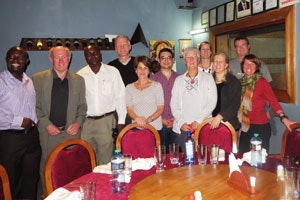 After a long day of work, the team gathered for dinner L-R: Henry Ngoitsi Nono, MMed, Jack Coleman, MD, Denge Makaya, MMed, Bruce Campbell, MD, Debara Tucci, MD, Joel Franco, Diana Sullivan, RN, Susan Cordes, MD, Kathi Campbell, RN, Kyle Cordes, and Theresa Vernon
After a long day of work, the team gathered for dinner L-R: Henry Ngoitsi Nono, MMed, Jack Coleman, MD, Denge Makaya, MMed, Bruce Campbell, MD, Debara Tucci, MD, Joel Franco, Diana Sullivan, RN, Susan Cordes, MD, Kathi Campbell, RN, Kyle Cordes, and Theresa VernonSusan R. Cordes, MD
Bruce H. Campbell, MD
Debara L. Tucci, MD, MBA
As part of the greater AMPATH Kenya Program, our nine-member team traveled to Eldoret in western Kenya, in February 2014 to deliver medical and surgical care and build on existing relationships in the program. AMPATH (Academic Model for Providing Access to Healthcare) was initiated by Indiana University (IU) physicians in 1989 as a partnership between IU and Moi University School of Medicine. MoiUniversity and its hospital, Moi Teaching and Referral Hospital (MTRH) in Eldoret, provides the only academic medical center for over three million people. The partnership between IU and MoiUniversity has flourished and expanded to include multiple specialties including otolaryngology.
One of the main tenets of AMPATH is to provide education and research but to always “Lead with Care.” With that concept in mind, otolaryngologist/head and neck surgeons have traveled to Kenya once or twice each year since 2009 to provide much-needed surgical care and education. Currently, otolaryngology has the longest waiting time for elective surgery at MTRH, and our team was able to perform 35 procedures and, in the process, teach surgical technique and enhance the already very solid partnership between the American and Kenyan otolaryngologists.
The American team consisted of Susan Cordes, MD (Indiana University), Bruce Campbell, MD (Medical College of Wisconsin), Debara Tucci, MD (Duke University), and Jack Coleman, MD (former chair of plastic surgery at IU), as well as nurses and IU medical student (and otolaryngologist-to-be), Joel Franco. We had the privilege of working with MTRH otolaryngology colleagues Titus Sisenda, MMed, Henry Nono, MMed (AAO International Visiting Scholar 2012), and
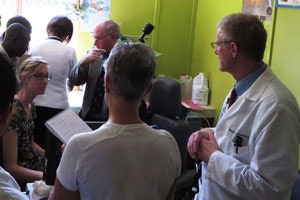 Seeing some of the more than 100 patients waiting in clinic the day we arrived: L-R: Susan Cordes, MD, Jack Coleman, MD, Diana Sullivan, RN (back to camera), Bruce Campbell, MD
Seeing some of the more than 100 patients waiting in clinic the day we arrived: L-R: Susan Cordes, MD, Jack Coleman, MD, Diana Sullivan, RN (back to camera), Bruce Campbell, MDDenge Makaya, MMed, and performed a wide range of surgeries, including thyroidectomies, nasal/sinus surgeries, cleft lip repairs, excision of cystic hygromas, facial/neck flap reconstruction, Sistrunk procedures, and a total laryngectomy. In addition, Debara Tucci met with key individuals to explore initiation of a hearing healthcare program for the region.
Based on our past experience with these trips, we brought most of the necessary supplies, but still ran out of some of the seemingly most basic of items (e.g., suction tubing connectors, Mastisol, steri strips, etc.). Though we wish we could have stayed until the last of the patients had been released from the hospital, we confidently left the care of the patients in the hands of our Kenyan colleagues and continue to receive regular updates on their progress.
Looking to the future, we plan to continue these trips and perhaps increase the frequency. Our Kenyan colleagues are
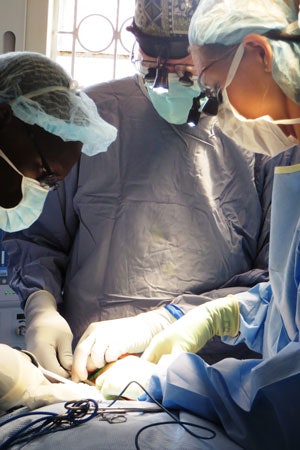 Performing a thyroidectomy with one of the Kenyan otolaryngologists: L-R: Titus Sisenda, MMed, Bruce Campbell, MD, Susan Cordes, MD, and Clinical Officer Charles Alisoreng.
Performing a thyroidectomy with one of the Kenyan otolaryngologists: L-R: Titus Sisenda, MMed, Bruce Campbell, MD, Susan Cordes, MD, and Clinical Officer Charles Alisoreng.exploring whether they might develop an otolaryngology residency program, which would be the second in Kenya. Our first joint research project has been submitted for review at both institutions, and we will continue to raise funds to further the educational experiences for our Kenyan otolaryngology colleagues.
Traveling to a distant land to perform surgery in a difficult environment is a challenge; however, the rewards of providing care that otherwise might not be possible far outweighs any hardship on our part. Experiences such as this trip really help crystallize what is important and valuable. It is so easy to get caught up in the pressures and frustrations of everyday life in the U.S.; however, in the greater world, there is more hardship than most of us can imagine, and the ability to affect the lives of these patients and our Kenyan colleagues is truly a gift. We are proud that so many otolaryngologists participate in these noble ventures and that the AAO is so supportive of humanitarian efforts. Anyone who has ever participated in one of these trips knows exactly what we mean, and for anyone who has not, we hope you take the opportunity.
